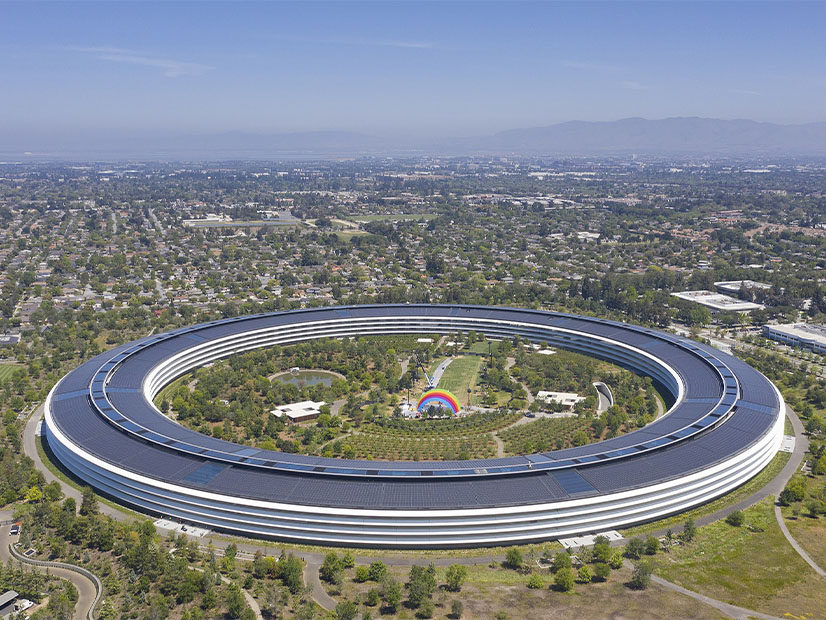
Of five studied, large U.S.-based companies, only Apple has a fair chance of hitting its carbon reduction goals, a recent report said.
The study by the Next Climate Institute and Carbon Market Watch gives Seattle-based Amazon, California-based Google and Arkansas-based Walmart a low chance of meeting their goals, while suggesting Rhode Island-based CVS Health Corp. has only a faint chance.
Of the 25 companies examined in the report, all of which have pledged to reduce carbon emissions, Danish shipping giant Maersk stands the greatest chance of meeting its carbon goals.
The study authors admit many gaps in its structure. Each nation was limited to five companies among the 25 samples, which defined their goals differently and exhibited varying levels of transparency about their current carbon emissions and reductions plans.
The study gives only Maersk a good chance of reaching its goals. It concludes that Apple, Sony and Vodaphone have fair chances. Amazon, Google and Wal-Mart are among 10 companies with poor chances. Eleven corporations, including CVS, have faint chances, the study said.
A breakdown of the study’s five U.S.-based companies finds that:
-
-
- Apple’s (NASDAQ:APPL) claims to be currently carbon neutral are misleading, addressing only its administration office, business travel and employee commuting, which represents just 1.5% of its carbon footprint, the study said. The overwhelming majority of its carbon footprint comes from buying, manufacturing and transporting components. Apple’s 2030 targets call for reducing massive amounts of carbon from manufacturing. The company does not have any published interim carbon reduction targets, but it has shown steady year-by-year carbon reductions.
- The study dinged Amazon (NASDAQ:AMZN) for a lack of details in its data, and the absence of interim reduction targets on emissions plus haziness on how emissions are defined leaves the study’s authors leery about Amazon becoming a net-zero emitter by 2040, which is the company’s goal. However, the study noted more detailed targets are expected to be published this year. Also, the study voiced concern about Amazon achieving part of its goals by investing in carbon credits related to forestry improvements.
- Google (NASDAQ:GOOG) currently claims to be carbon neutral and plans to be carbon-free by 2030, but the study says carbon neutrality is achieved with carbon credits and that only some specific emissions are tracked. Google has a great number of anti-carbon measures in motion. The study also contends more detailed data are needed to gauge their effectiveness.
- Walmart (NYSE:WMT) has credible interim targets and a strategy to eliminate its operational emissions by 2040, but that accounts for only 9% of its carbon footprint. Meanwhile, the retailer relies on its suppliers voluntarily reducing their emissions with no interim targets. The report recommends that Walmart make suppliers’ participation mandatory or create better incentives to participate. The company should also set specific emissions targets for its suppliers.
- The study criticized CVS (NYSE:CVS) for “insufficient identification of emission reduction measures” to achieve a 2050 net-zero target: “We could not identify measures that CVS Health wants to implement to realize deep emissions reductions.”
-
Meanwhile, Maersk is decarbonizing its ship fuel, which accounts for 63% of its total emissions. However, the study contends the shipper does not have clear plans to decarbonize emissions from its supply chains and electricity use, which will likely grow as the ships switch to alternative fuels. Maersk is aiming for net-zero emissions by 2040.


